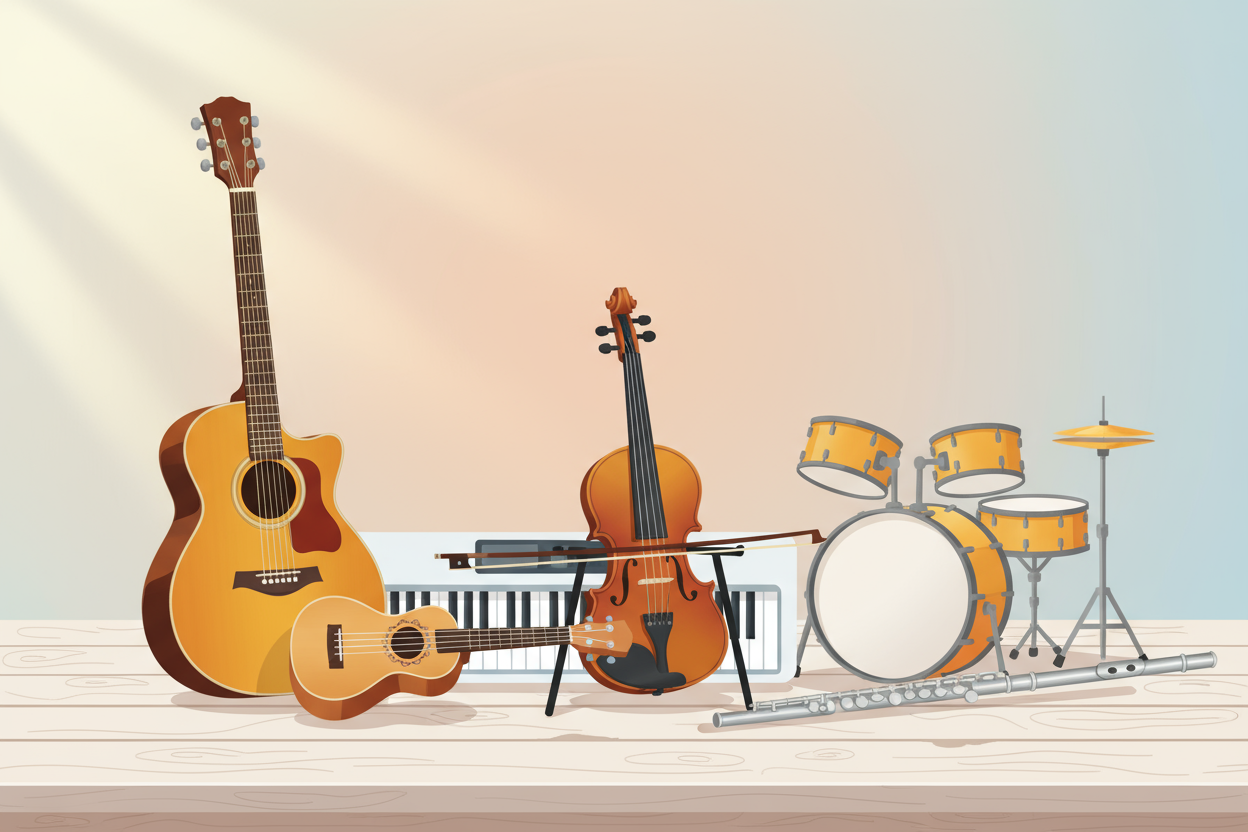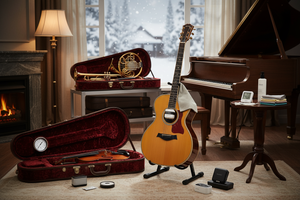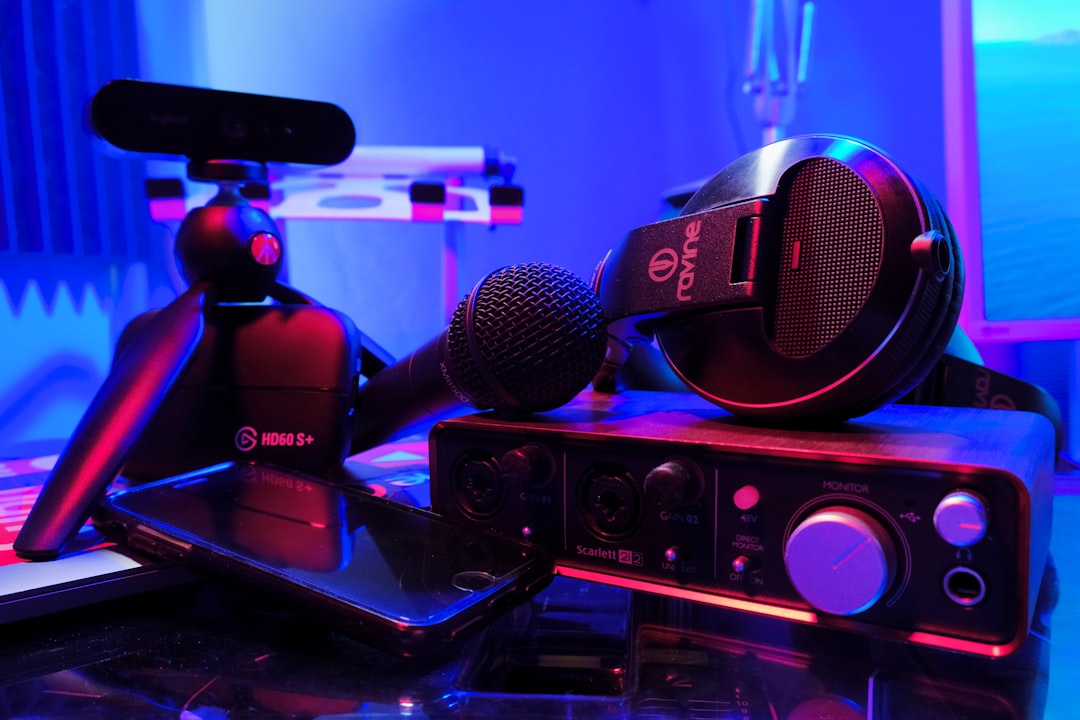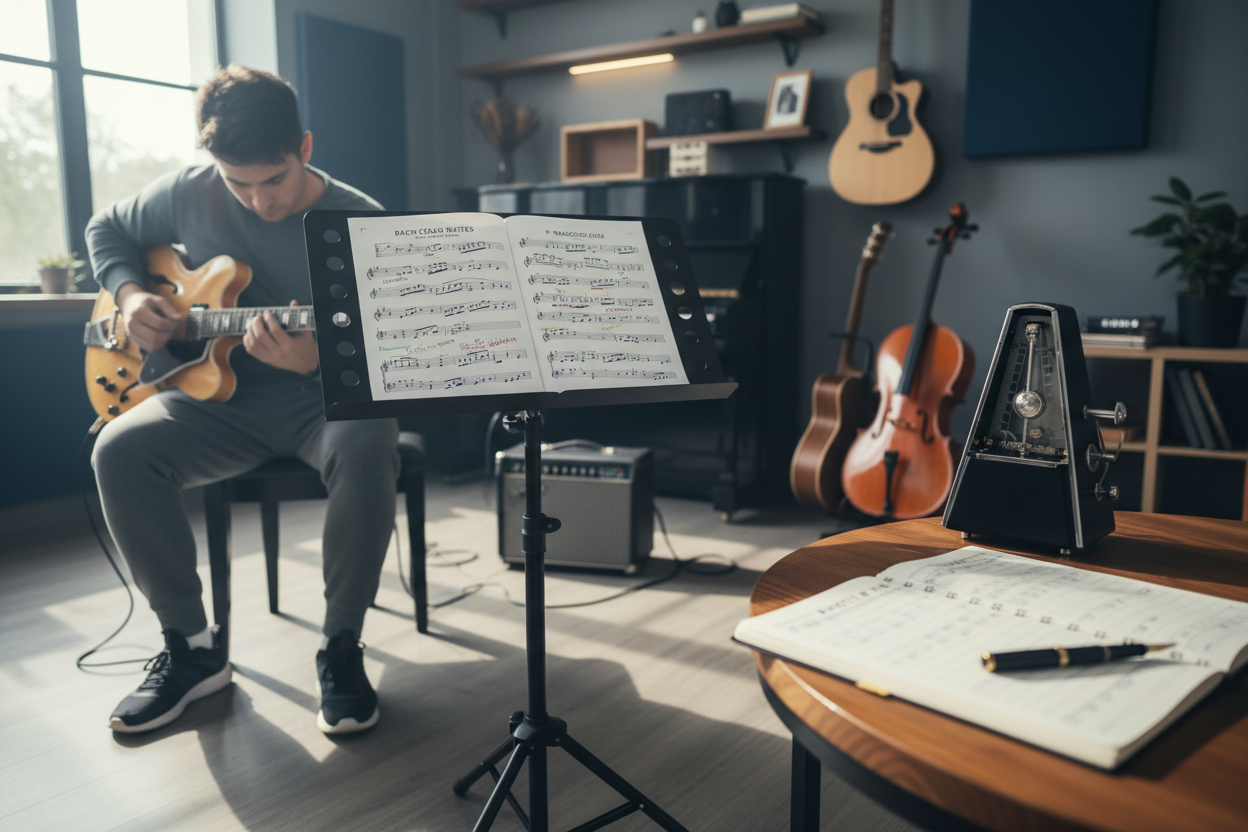How to Choose the Right Musical Instrument for Beginners: A Complete Guide
Starting your musical journey with the right instrument is key to long-term success and enjoyment. This guide breaks down beginner-friendly options, what to consider before buying, and how to find the perfect match for your style and goals.
Key Takeaways
- Choose instruments that balance ease of learning, affordability, and portability.
- Consider your age, physical size, and musical style preferences when selecting an instrument.
- Trusted brands improve quality and playability, making learning smoother and more enjoyable.
- Hands-on experience and expert advice are invaluable before making a purchase.
- Pick an instrument that truly inspires you—passion fuels practice and progress.
Table of Contents
- 1. Best Beginner-Friendly Instruments to Start With
- 2. Factors to Consider When Choosing a Musical Instrument
- 3. Understanding Brand Quality: Balancing Cost and Reliability
- 4. Tips for Making Your Final Instrument Choice
- 5. Summary Table: Beginner Instruments at a Glance
- FAQ
1. Best Beginner-Friendly Instruments to Start With
Starting with the right instrument can make learning more enjoyable and less intimidating. Here are some of the top beginner-friendly instruments, featuring ease of play, affordability, and portability.
Harmonica: Compact and Full of Character
Ideal for beginners seeking a portable and expressive instrument, the harmonica is affordable, easy to carry, and quick to start playing simple melodies.
- Affordability: $10–$50
- Portability: Easily fits in your pocket
- Musical styles: Blues, folk, country, rock
- Top beginner brands: Hohner, Suzuki
Learn more about easy instruments to start with
Guitar: A Classic for a Reason
A popular choice offering wide versatility across genres. It demands finger strength and coordination but rewards patience with rich, versatile musical possibilities.
- Affordability: $100–$200
- Portability: Moderate size but transportable
- Musical styles: Pop, rock, folk, blues, and more
- Top beginner brands: Yamaha, Fender, Ibanez
Ukulele: Joyfully Simple
With only four strings and a cheerful tone, the ukulele is extremely beginner-friendly and popular among all age groups for quick progress.
- Affordability: $50–$100
- Portability: Very high; lightweight and compact
- Musical styles: Folk, pop, singer-songwriter
- Top beginner brands: Kala, Cordoba, Mahalo
More info on the easiest instruments to learn
Piano / Keyboard: A Gateway to Music Theory
Perfect for building a foundation in music theory, the keyboard offers clear visual cues for scales and chords and suits nearly every genre.
- Affordability: $100+
- Portability: Moderate; digital keyboards are manageable in size
- Musical styles: Classical, pop, rock, jazz, and beyond
- Top beginner brands: Yamaha, Casio, Roland
Discover more about beginner-friendly instruments
Recorder: A Kid-Friendly Classic
A traditional starter instrument for young learners, lightweight and easy to master basic breath control and finger coordination.
- Affordability: Under $20
- Portability: Fits in school bags easily
- Musical styles: Classical, folk
- Top beginner brands: Yamaha, Aulos
Read more about easy instruments for children
Handheld Percussion: Rhythm Made Simple
For those who love rhythm, handheld percussion like tambourines and maracas provide a fun introduction with no steep learning curve.
- Affordability: Under $20
- Portability: Extremely high
- Musical styles: Rhythm-focused support across genres
Drums: Dynamic and Engaging
Great for rhythm lovers who want a physical, energetic instrument. Options include acoustic and electronic kits tailored to beginners.
- Affordability: Variable; entry-level kits available
- Portability: Moderate; electronic kits are more compact
- Musical styles: Rock, jazz, pop, funk, and more
2. Factors to Consider When Choosing a Musical Instrument
Selecting your first instrument involves balancing personal preferences with practical aspects. Here are key factors to reflect on:
Age and Physical Size
Comfort and ease of handling vary by age:
- Small, lightweight instruments like ukulele or recorder work best for children.
- Teens and adults can comfortably manage guitars, keyboards, and harmonicas.
- Instruments requiring high finger strength, such as guitars, may be impractical for very young beginners.
Ease of Learning
- Ukulele, harmonica, and recorder deliver faster initial progress with simple techniques.
- Piano offers excellent visibility of music theory but calls for two-handed coordination.
- Guitar needs gradual finger strength development and mastering multiple chords.
Affordability and Budget
- Budget-friendly choices include the harmonica, recorder, and ukulele.
- Keyboards and guitars tend to cost more but offer wider musical possibilities.
- Purchase from reputable brands to avoid low-quality instruments that hinder learning.
Portability
- Highly portable instruments: harmonica, recorder, ukulele, handheld percussion.
- Moderate portability: acoustic guitar, digital keyboard.
- Lowest portability: full-size pianos, acoustic drum kits.
Musical Style Preferences
- Ukulele and acoustic guitar work wonderfully for folk and singer-songwriter styles.
- Harmonica is ideal for blues and country fans.
- Piano and recorder suit lovers of classical music.
- Keyboard appeals to those who want versatility across genres.
3. Understanding Brand Quality: Balancing Cost and Reliability
Choosing instruments from trusted brands ensures good sound quality, durability, and easier learning.
- Ukulele: Kala, Cordoba, Mahalo
- Guitar: Yamaha, Fender, Ibanez
- Keyboard/Piano: Yamaha, Casio, Roland
- Harmonica: Hohner, Suzuki
- Recorder: Yamaha, Aulos
Avoid cheap off-brand instruments that can frustrate beginners with poor build and sound.
4. Tips for Making Your Final Instrument Choice
Do Your Research
- Watch demonstration videos and read reviews from other beginners.
- Compare features, construction, and brand reputation.
- Ensure the instrument aligns with your goals and physical comfort.
Try Before You Buy
- Visit local music stores to handle different instruments.
- Join beginner workshops or community classes when possible.
- Test various brands and models to see what feels right.
Seek Expert Advice
- Consult music teachers familiar with beginners.
- Get input from experienced players and store staff.
Choose What Inspires You
Your enthusiasm will keep you motivated through challenges. Select the instrument that excites your passion, turning practice into joyful play.
5. Summary Table: Beginner Instruments at a Glance
| Instrument | Ease of Learning | Affordability | Portability | Suitable Age | Popular Beginner Brands | Musical Interests |
|---|---|---|---|---|---|---|
| Ukulele | Very easy | $50–$100 | Very high | All ages | Kala, Cordoba, Mahalo | Pop, folk, acoustic |
| Harmonica | Very easy | $10–$50 | Pocket-size | All ages | Hohner, Suzuki | Blues, folk, rock |
| Recorder | Very easy | Under $20 | Pocket-size | Young children | Yamaha, Aulos | Classical, folk |
| Keyboard/Piano | Easy | $100+ | Moderate | All ages | Yamaha, Casio, Roland | All genres |
| Acoustic Guitar | Moderate | $100+ | Moderate | Teens, adults | Yamaha, Fender, Ibanez | Many genres |
| Hand Percussion | Very easy | Under $20 | Very high | Young children | Various | Rhythm basics |
FAQ
What is the easiest instrument for beginners?
Instruments like the ukulele, harmonica, and recorder are among the easiest to learn, thanks to their simple techniques and quick progression curves.
How much should I spend on my first instrument?
For beginners, it’s best to start with an affordable instrument in the $20 to $200 range depending on the type. Prioritize quality from reputable brands rather than lowest cost.
Can I learn an instrument if I have no musical background?
Absolutely! Many beginners start with no prior experience. Selecting a beginner-friendly instrument and following guided lessons makes learning accessible to all.
Should I buy an acoustic or electric guitar as a beginner?
Acoustic guitars are generally recommended for beginners due to their simplicity and portability. Electric guitars offer different possibilities but may require additional equipment and setup.
Where can I try instruments before buying?
Visit local music stores, attend beginner workshops, community music classes, or events where you can test various instruments firsthand before making a decision.
Ready to start your musical adventure? Visit Emusicmart for a curated selection of quality beginner instruments and expert guidance.








